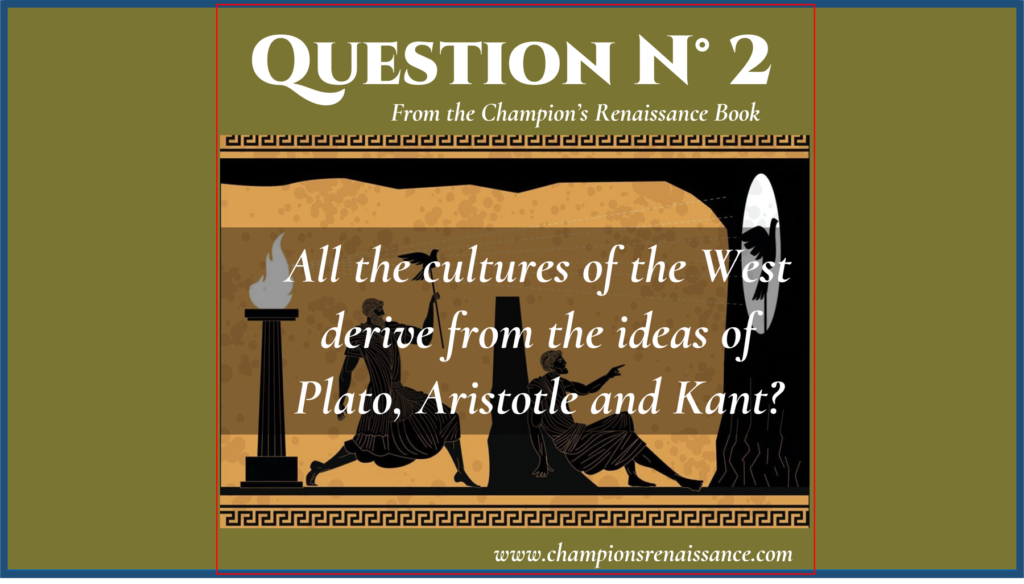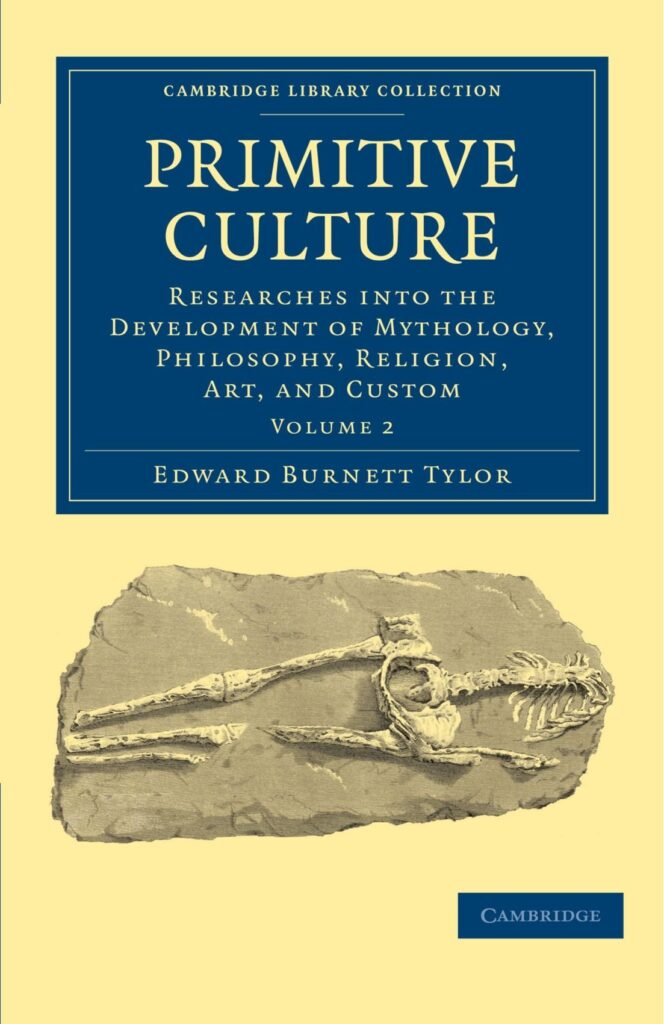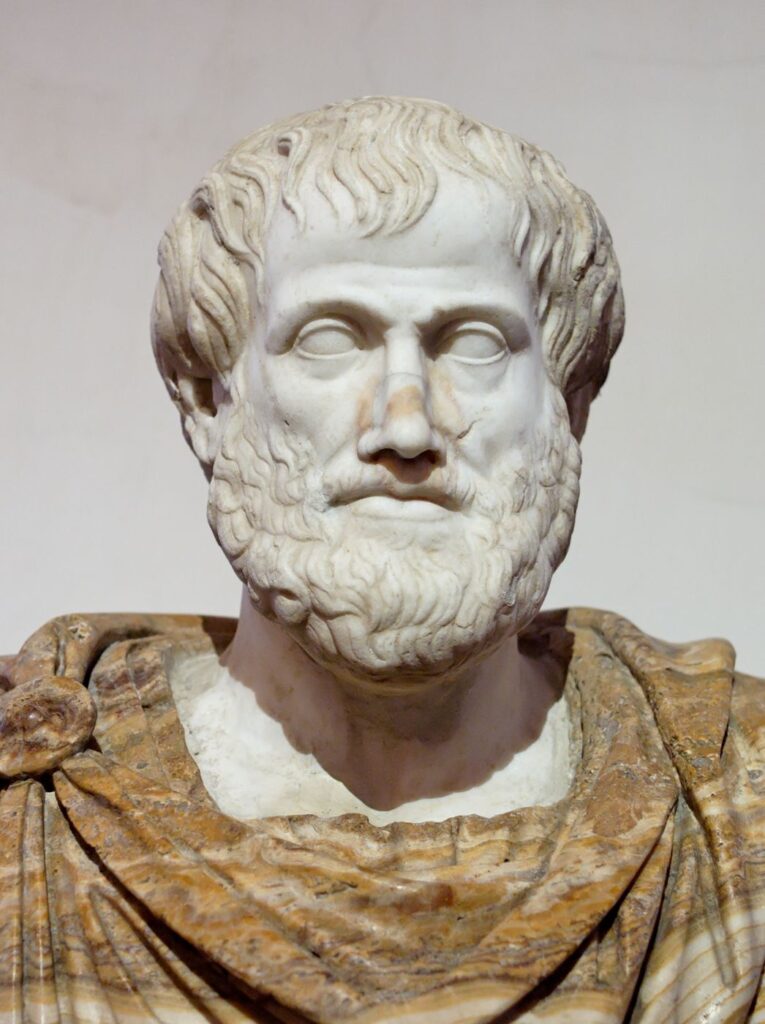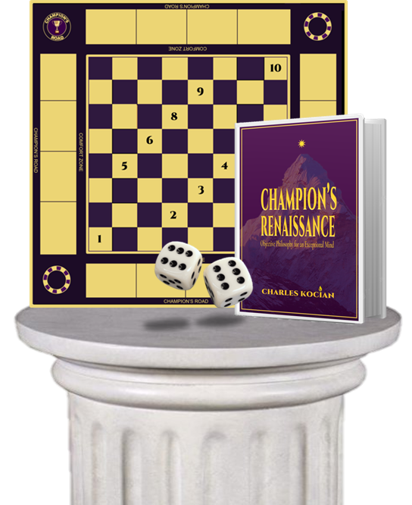
(Answer at the end).
THE WESTERN PREMISES
By Charles Kocian
In the last post we saw how the cultural mold shapes our minds since we are children without our consent. This lack of critical thinking when we absorb our premises and paradigms is the cause of the homo-sapiens-cultural-problem.
For example, it’s obvious that NATO and Russia have very different opinions about the causes of the Ukraine war. But, isn’t the material reality something that exist by its own independently from government’s opinions?
Another example is what happened to Galileo. Galileo was right: the material reality of Earth existed by its own laws, independently from the Vatican opinions. The Earth moved, and it always did independently from the Vatican mystic superstitions. Another example is that in ancient Greece people needed to believe in Zeus to understand electricity, but not anymore.

Lightning electricity, not the will of Zeus.
Plato believed in another superstition. He said that, before the material world, an eternal parallel world exists. It is a perfect world, he said, that exists in another dimension. You know about it by faith because it can’t be perceived. He called it the world of ideas. This gave birth to the mystic paradigm that believes that consciousness (perception) can exist before and without existence. But, how can we be conscious of something that isn’t there? God exists as a cultural metaphor, but its historic persistence only proves men’s superstition not objective reality.
An exceptional mind thinks only with objective concepts. Objective concepts are the finest concepts. They derive from the material reality we can perceive with our five senses. Just like a luxury product derives from the finest materials, an exceptional mind derives only from the finest concepts.

Edward Burnett Tylor, the founder of anthropology.
Edward Burnett Tyler in his book Primitives Cultures explains the origins of superstition. Plato’s Cavern’s Allegory is a superstitious believe that gave birth to religions. Its metaphysics starts with faith, not science; intuition, not evidence. It says that perception exists before existence, but ask yourself, can you perceive something isn’t there? Can you hit a ball that doesn’t exist? It’s non sense! Something must exist first to be conscious of it!
Aristotle arrived to that same conclusion, but what really matters is your own conclusion. Think about it!

“The senses are gateways to intelligence.” Aristotle.
All the cultures of the West derive from the ideas of Plato, Aristotle and Kant? These philosophers see reality very differently. To explain the point let’s use the bicycle’s metaphor.
Imagine a bicycle disassembled with all its parts such as pedals, wheels, chain, handlebars all piled up. Even if they are all together, they are not connected, therefore, that is not a bicycle but a “heap”.
If each part is mistakenly connected, for example, the chain with the handlebar, the chair with the wheel, what results is not a bicycle either.
A bicycle exists only when its parts are logically connected so that it can be ridden, and the same goes for concepts, not to ride a bicycle, but to think.
But what are concepts? Certainly, not words. A parrot can say: “To be or not to be, that is the question”, but that doesn’t convert the parrot into Shakespeare. Concepts derives from the things we perceive. The parts of nature are connected in the principle of non-contradiction. A cannot be A and B at the same time. Nature’s beauty, from a flower to a tree, from the waves of the sea to the stars in the sky, rests on this principle. The Champion’s Renaissance book compares Plato, Aristotle and Kant paradigms allowing us to unlock nature’s power and beauty.

“The biclycle’s allegory shows how an exceptional mind connects the finest concepts.” Charles Kocian.
CONCLUSION
The final conclusion is that understanding the ontological differences between Plato, Kant and Aristotle is fundamental to understand the paradigm of nature.
The benefit from it is the wealth of an exceptional mind with a refined independent self-esteem.
Now, the answer for the question of today.
QUESTION N° 2
All the cultures of the West derive from the ideas of Plato, Aristotle and Kant.
a) True
b) False
The correct answer is alternative “a”.
Leave your comments here.


